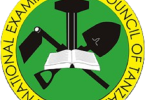NECTA Form Two Timetable 2024: A Comprehensive Guide for Students
Introduction: As the academic year progresses, students across Tanzania eagerly anticipate the release of examination timetables, marking milestones in their educational journey. For Form Two students, the NECTA (National Examinations Council of Tanzania) Form Two Timetable 2024 is a crucial document outlining the schedule for their examinations. In this article, we’ll delve into the details of the NECTA Form Two Timetable 2024, providing students with essential information to help them prepare effectively.
NECTA Form Two Timetable
The NECTA Form Two examinations serve as a significant assessment in the Tanzanian education system, evaluating students’ knowledge and understanding acquired during their second year of secondary education. These examinations cover various subjects, testing students’ proficiency across a broad spectrum of academic disciplines.
Key Subjects Covered in the Form Two Examinations:
- Mathematics
- Kiswahili
- English Language
- Civics
- History
- Geography
- Physics
- Chemistry
- Biology
- Bookkeeping
- Commerce
- Agriculture
- French
- Arabic
These subjects represent a comprehensive curriculum designed to equip students with foundational knowledge and skills essential for their academic and personal development.
Click here to Get NECTA Form Two Timetable 2024
The NECTA Form Two Timetable 2024 provides students with a detailed schedule for their examinations, enabling them to plan and organize their study routines effectively. It outlines the dates, times, and duration of each examination, ensuring that students are well-prepared and informed.
HOW TO PREAPARE FOR EXAMINATION
Exam preparation can seem like a difficult undertaking, but with the right methods and approaches, you can increase your chances of success. The following advice can help you get ready for exams:
- Create a Study Schedule: Organize your study time by creating a schedule that allocates specific time slots for each subject or topic. Make sure to include breaks to avoid burnout.
- Understand the Exam Format: Familiarize yourself with the format of the exam, including the types of questions (multiple-choice, essay, short answer, etc.) and the weightage given to each section.
- Gather Study Materials: Collect all the necessary study materials such as textbooks, notes, past exam papers, and other relevant resources. Make sure you have everything you need before you start studying.
- Break Down the Syllabus: Divide the syllabus into smaller, manageable sections. Focus on one topic at a time and ensure that you understand it thoroughly before moving on to the next.
- Active Learning Techniques: Engage in active learning techniques such as summarizing the material in your own words, teaching it to someone else, or creating flashcards to reinforce your understanding.
- Practice Past Exam Papers: Practicing past exam papers is an excellent way to familiarize yourself with the exam format and identify areas where you need improvement. Try to simulate exam conditions as closely as possible when practicing.
- Seek Clarification: If you encounter any concepts or topics that you find difficult to understand, don’t hesitate to seek clarification from your teachers, classmates, or online resources.
- Stay Organized: Keep your study space organized and free from distractions. Ensure that you have all the necessary stationery and materials within reach.
- Stay Healthy: Take care of your physical and mental health during the exam preparation period. Get enough sleep, eat healthily, and engage in regular exercise to maintain optimal focus and concentration.
- Stay Calm and Confident: It’s natural to feel nervous before an exam, but try to stay calm and confident in your abilities. Trust in the preparation you’ve done and approach the exam with a positive mindset.
Recall that efficient exam preparation involves more than just memorizing facts—it also entails comprehending and skillfully applying concepts. Your chances of succeeding in exams might be raised by paying attention to these pointers and studying with discipline.






